December 6th
December 6th marks the 340th day of the year (341st in leap years), with just 25 days remaining until the year’s end. This day is widely celebrated as Saint Nicholas Day, honoring the inspiration behind the modern figure of Santa Claus. It is also remembered for significant historical events, such as the ratification of the Thirteenth Amendment to the U.S. Constitution in 1865, abolishing slavery in the United States. Notable birthdays on this day include jazz legend Dave Brubeck, baseball great Craig Biggio, and fashion designer Peter Carl Fabergé. In the realm of pop culture, it’s a day to reflect on traditions of generosity and goodwill, drawing from its rich historical and cultural significance.
December 6th Holidays
1. National Gazpacho Day

National Gazpacho Day is celebrated annually on December 6th. It’s a day to appreciate gazpacho, the refreshing cold soup originating from Spain, particularly from the Andalusian region. This dish is beloved for its light, zesty flavors and its nutritious combination of fresh ingredients like tomatoes, cucumbers, peppers, onions, olive oil, and garlic.
2. Anniversary of the Founding of Quito
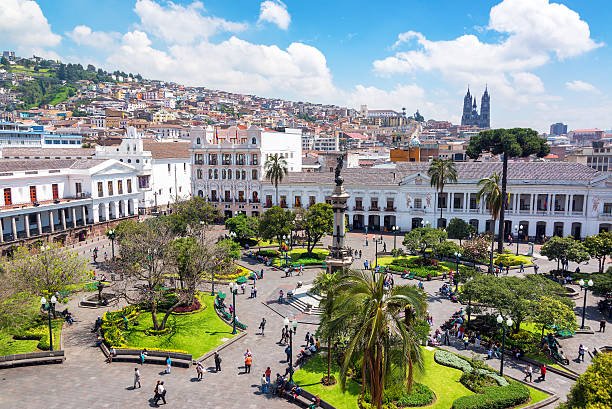
The Anniversary of the Founding of Quito, celebrated annually on December 6th, honors the establishment of the city in 1534 by Spanish conquistadors led by Sebastián de Belalcázar. Known as the “Light of America” for its role in the independence movements of Latin America, Quito is one of the oldest cities in South America with a rich history that predates Spanish colonization. It was once part of the Inca Empire and an important indigenous settlement.
The celebration includes vibrant parades, cultural exhibitions, music, traditional dances, and bullfighting events, showcasing Ecuadorian pride and heritage. It’s a major holiday in the capital city, bringing together locals and tourists to commemorate Quito’s historical and cultural significance.
3. Armed Forces Day in Ukraine
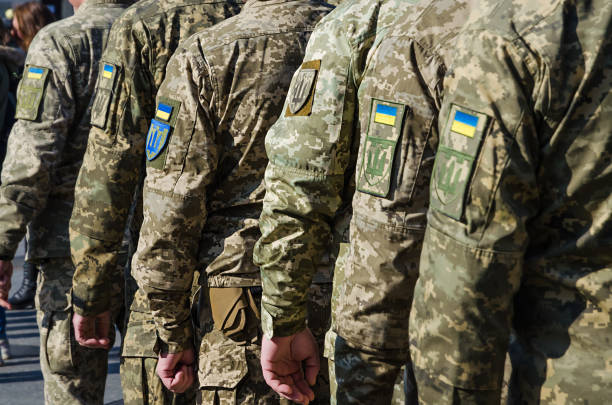
Armed Forces Day in Ukraine, celebrated annually on December 6th, honors the bravery, dedication, and sacrifices of the Ukrainian military. Established in 1993, this day commemorates the creation of Ukraine’s armed forces following its independence in 1991.
The holiday recognizes soldiers across all branches—Army, Navy, Air Force, and Territorial Defense—who protect the nation’s sovereignty and ensure its security. It is a time for military parades, ceremonies, and expressions of gratitude from civilians to service members.
Amid ongoing challenges to Ukraine’s territorial integrity, Armed Forces Day has taken on even greater significance, symbolizing national unity and resilience.
4. Constitution Day in Spain (Día de la Constitución)
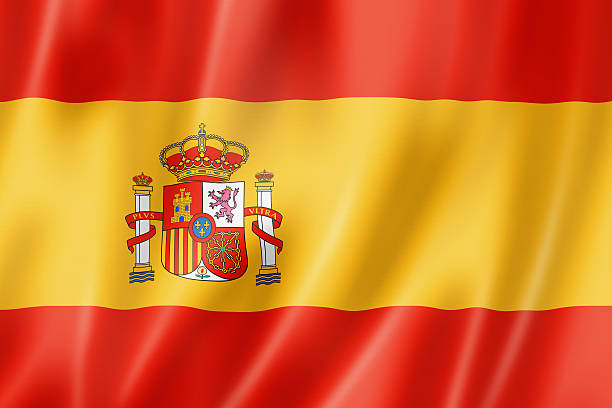
Constitution Day in Spain (Día de la Constitución), celebrated annually on December 6th, marks the adoption of Spain’s modern democratic constitution in 1978. This pivotal document, approved in a national referendum, established Spain as a parliamentary democracy and laid the foundation for freedoms, rights, and governance following decades of dictatorship under Francisco Franco.
The day is a public holiday, observed with educational events, ceremonies, and discussions about the significance of the constitution. Schools and institutions often use the occasion to teach about Spain’s political history and democratic values. Constitution Day serves as a reminder of Spain’s commitment to democracy, unity, and the rule of law.
5. Day of the Ministry of Communications and Information Technologies of Azerbaijan
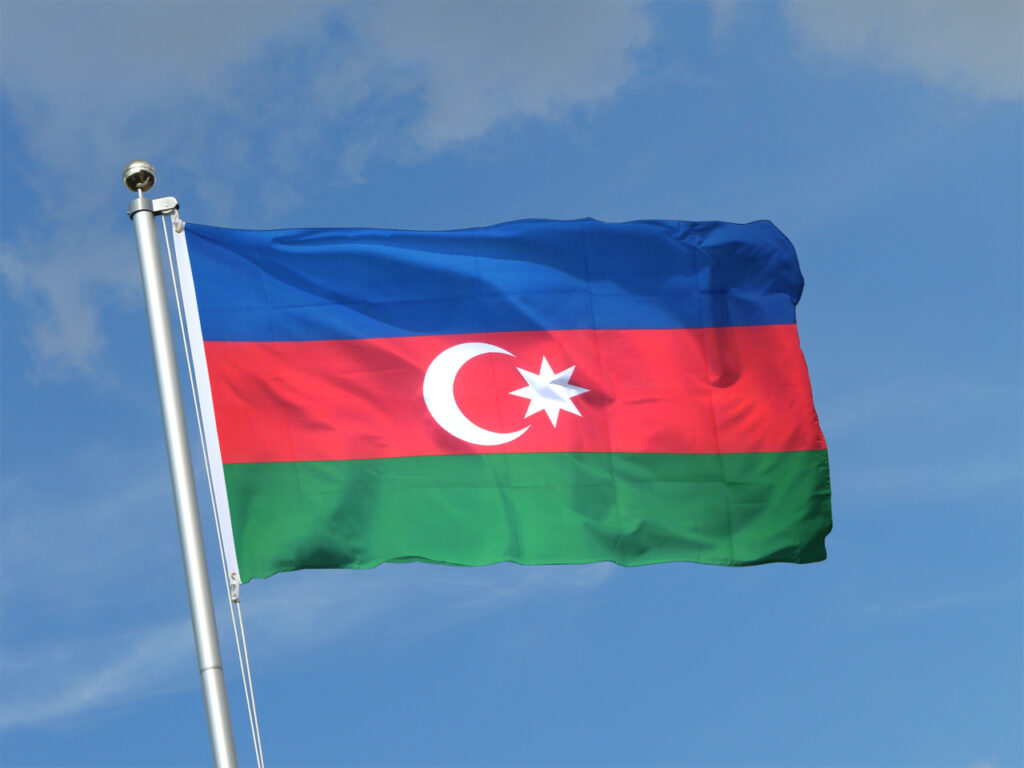
The Day of the Ministry of Communications and Information Technologies of Azerbaijan is celebrated annually on December 6th to honor the significant contributions of the Ministry in the development of the country’s communications and information technology sectors. Established in 2001, this day highlights the Ministry’s role in modernizing Azerbaijan’s infrastructure, fostering innovation, and enhancing digital connectivity.
The Ministry of Communications and Information Technologies is key in advancing the country’s technological capabilities, supporting the growth of the IT industry, and improving access to communication services across Azerbaijan. The day is marked by ceremonies and events that recognize the achievements of the Ministry and celebrate the ongoing progress in technology, innovation, and telecommunications in Azerbaijan.
6. Independence Day in Finland
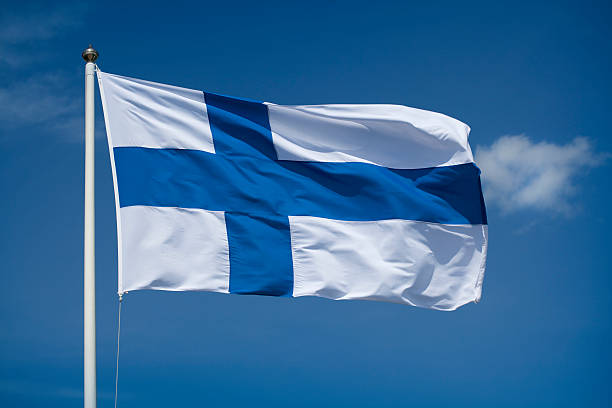
Independence Day in Finland, celebrated on December 6th, marks the country’s declaration of independence from Russia in 1917. On this day, Finland officially became a sovereign nation, following over a century of Russian rule. The declaration was made by the Finnish Parliament, and it was later recognized internationally.
Independence Day is a national holiday in Finland, observed with various ceremonies, including a presidential reception, parades, and events that celebrate Finnish culture and history. It is a day of reflection on Finland’s journey to independence and the sacrifices made to maintain its sovereignty. The holiday is also a time for Finns to honor the country’s freedom, its democratic values, and the contributions of those who fought for independence.
7. National Day of Remembrance and Action on Violence Against Women in Canada
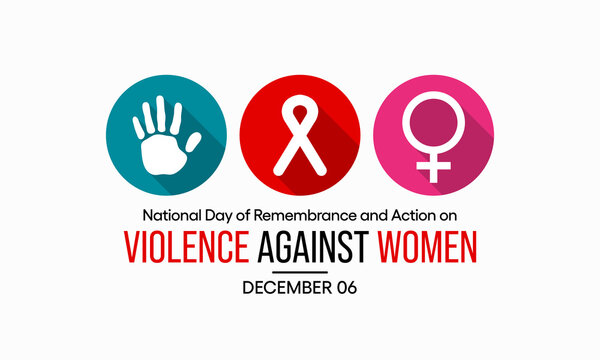
The National Day of Remembrance and Action on Violence Against Women in Canada is observed annually on December 6th. This day commemorates the tragic events of December 6, 1989, when 14 women were tragically murdered at École Polytechnique in Montreal by a gunman who specifically targeted women, highlighting the issue of gender-based violence.
The day serves as a reminder of the ongoing need to combat violence against women and promote gender equality. It is a time for Canadians to reflect on the importance of working together to end violence, support survivors, and honor those who have lost their lives. Across the country, individuals, organizations, and communities come together for memorials, educational events, and campaigns aimed at raising awareness and advocating for change.
December 6th Birthdays
December 6th is a day that brings joy and celebration to the lives of many, as it’s the birthday of a wide variety of influential figures. From rising stars in the entertainment industry to legendary athletes and pastors, this day is marked by the birthdays of several remarkable individuals. Let’s take a closer look at some of the most notable people born on December 6th.
1. Stella Chuu
Stella Chuu, an influential personality in the world of entertainment, celebrates her birthday on December 6th. Known for her unique style and personality, she has made a name for herself in the industry and continues to inspire many.
2. That Girl Nicole
Another rising star born on this day is That Girl Nicole. She’s become a popular figure for her creative and relatable content, captivating her audience with her charm and sense of humor.
3. Princess Sofia of Sweden
The beautiful and graceful Princess Sofia of Sweden, born on December 6th, is a Swedish Duchess known for her philanthropy and commitment to various charitable causes. Her life has been one of elegance and dedication to public service.
4. Satoru Iwata
Satoru Iwata, who was born on December 6th, 1959, made a lasting impact on the gaming industry. As the CEO of Nintendo, he was instrumental in revolutionizing the gaming world. His leadership and innovative thinking continue to influence the industry to this day.
5. Millie Davis
Millie Davis, born on this day, is one of the most celebrated child actresses of her time. Known for her incredible talent and dedication, Millie continues to shine in the world of film and television, captivating audiences with her performances.
6. Nathan Blair
Rising star Nathan Blair, born on December 6th, is rapidly becoming one of Hollywood’s most talked-about young actors. His talent and dedication are paving the way for an exciting future in the entertainment industry.
7. Kenneth Copeland
Kenneth Copeland, born on December 6th, is a renowned pastor known for his powerful preaching and worldwide influence. As one of the most recognized faces in the Christian community, his life and work have inspired millions.
8. Mike Wilkerson
Mike Wilkerson, a TikTok sensation and rising influencer, was born on December 6th. His ability to connect with his audience and his creative content has earned him a loyal following, and there’s no telling where his career will go from here.
9. Giannis Antetokounmpo
Known as the “Greek Freak,” Giannis Antetokounmpo is one of the most talented basketball players of our time. Born on December 6th, Giannis has made a tremendous impact on the NBA, earning multiple accolades and inspiring athletes worldwide with his hard work and dedication.
10. Frankie Beverly
The legendary Frankie Beverly, born on this day, is a man of many talents. His soulful music and captivating stage presence have made him a beloved figure in the world of R&B. His influence continues to inspire new generations of musicians and fans alike.
11. EvanTubeHD
EvanTubeHD, a YouTube sensation, celebrates his birthday on December 6th. With his engaging and family-friendly content, he has built a massive online following, becoming one of the most well-known young stars on the platform.
12. Darian Rojas
Darian Rojas, one of Mexico’s biggest TikTok stars, was born on December 6th. His comedic skits and relatable content have earned him a huge fanbase, and he continues to rise in popularity as a leading influencer in the digital world.
13. A Boogie wit da Hoodie
Finally, A Boogie wit da Hoodie, born on December 6th, has made waves in the music industry with his unique blend of hip-hop and rap. From his early days in the Bronx to becoming a global star, A Boogie’s journey is a testament to his resilience and talent.
December 6th is a day filled with talent, creativity, and inspiration. These individuals have shaped their respective industries, and their legacies continue to influence many. Whether in entertainment, sports, or philanthropy, each one of them brings something unique to the world.
December 6th Events
Significant Events of December 6: A Journey Through History
December 6th marks the anniversary of several pivotal events that shaped the world as we know it. From the crowning of kings to the exploration of new lands, this day stands as a testament to the rich tapestry of human history.
Pre-1600:
1060: Béla I Becomes King of Hungary
On this day in 1060, Béla I was crowned as the King of Hungary. His reign marked a critical period in the consolidation of the Hungarian kingdom, as Béla I focused on strengthening the monarchy and addressing internal conflicts. His leadership helped set the stage for Hungary’s development during the Middle Ages.
1240: Kyiv Falls to the Mongols
During the Mongol invasion of Rus’, the city of Kyiv, defended valiantly by Voivode Dmytro, succumbed to the forces of Batu Khan. This event on December 6, 1240, was a significant moment in the Mongol expansion and left a lasting impact on the region, reshaping the political and cultural landscape of Eastern Europe.
1492: Columbus Discovers Hispaniola
After exploring Cuba in his quest for gold, Christopher Columbus landed on an island he named Hispaniola on this day in 1492. Mistaking it for Japan, Columbus’s discovery marked the beginning of European colonization in the Americas. Hispaniola, now home to Haiti and the Dominican Republic, played a pivotal role in the history of the New World.
1534: Founding of Quito, Ecuador
On December 6, 1534, Spanish settlers led by Sebastián de Belalcázar established the city of Quito in present-day Ecuador. Situated high in the Andes Mountains, Quito became a vital center for Spanish colonial administration and remains one of the oldest capitals in South America. Its historical and architectural heritage continues to attract visitors from around the globe.
1601–1900:
1648: Pride’s Purge Shapes the English Civil War
On December 6, 1648, Pride’s Purge dramatically altered the political landscape of England. Colonel Thomas Pride led troops to remove royalist sympathizers from Parliament, ensuring the formation of a High Court of Justice to put King Charles I on trial. This decisive act was a key moment in the English Civil War and led to the king’s eventual execution.
1704: The Battle of Chamkaur
During the Mughal-Sikh Wars, the Battle of Chamkaur unfolded on this day in 1704. Despite being vastly outnumbered, the Sikh Khalsa forces displayed remarkable bravery, defeating a much larger Mughal army. This battle remains a significant symbol of resilience and sacrifice in Sikh history.
1745: Jacobite Retreat Marks a Turning Point
As part of the second Jacobite Rising, December 6, 1745, saw Charles Edward Stuart’s army begin its retreat. This marked a shift in the Jacobite campaign to reclaim the British throne, ultimately culminating in the defeat at the Battle of Culloden the following year.
1790: U.S. Congress Moves to Philadelphia
On this day in 1790, the United States Congress relocated from New York City to Philadelphia. This move marked an important chapter in the young nation’s history, with Philadelphia serving as the temporary capital while plans for Washington, D.C., were underway.
1803: End of the Haitian Revolution
In a dramatic naval encounter, five French warships attempting to break the British blockade of Saint-Domingue were captured on December 6, 1803. This defeat signaled the end of the Haitian Revolution, solidifying Haiti’s independence and ending French colonial rule on the island.
1865: Georgia Ratifies the 13th Amendment
A monumental step in the fight for freedom, Georgia ratified the 13th Amendment to the U.S. Constitution on December 6, 1865. This action officially abolished slavery across the United States, marking a pivotal moment in American history.
1882: Rare Celestial Event — Transit of Venus
The second and final Transit of Venus of the 19th century occurred on this day in 1882. This rare astronomical event, where Venus passes directly between the Earth and the Sun, captivated scientists and sky-watchers alike.
1884: Completion of the Washington Monument
A towering tribute to the first U.S. president, the Washington Monument was completed on December 6, 1884. Standing as a symbol of national pride in Washington, D.C., the monument continues to inspire visitors with its architectural elegance and historical significance.
1897: London Introduces Licensed Taxicabs
On this day in 1897, London became the first city in the world to officially license taxicabs. This innovation transformed urban transportation, setting a precedent for cities worldwide to regulate and standardize taxi services.
1901-Todate:
1904: Roosevelt Corollary Expands U.S. Influence
Theodore Roosevelt introduced the “Roosevelt Corollary” to the Monroe Doctrine on this day in 1904. This policy declared the U.S. as a stabilizing force in the Western Hemisphere, asserting its right to intervene in Latin America in cases of instability, profoundly shaping American foreign relations in the 20th century.
1907: Monongah Mine Disaster
On December 6, 1907, tragedy struck in Monongah, West Virginia, when a coal mine explosion claimed the lives of 362 workers. This remains one of the deadliest mining disasters in U.S. history and led to significant reforms in mining safety standards.
1912: Discovery of the Nefertiti Bust
The iconic Nefertiti Bust, a masterpiece of ancient Egyptian art, was unearthed on this day in 1912 by German archaeologist Ludwig Borchardt. The bust continues to captivate the world with its beauty and mystery.
1916: Bucharest Falls in World War I
During World War I, the Central Powers captured Bucharest, the capital of Romania, on December 6, 1916. This marked a critical moment in the war, with Romania temporarily subdued by the advancing forces.
1917: Finland Declares Independence
On this day in 1917, Finland proclaimed its independence from the Russian Empire, becoming a sovereign nation. The declaration marked a new chapter in Finland’s history and its emergence as a democratic state.
1917: The Halifax Explosion
A catastrophic munitions explosion in Halifax, Nova Scotia, killed over 1,900 people on December 6, 1917. It was the largest artificial explosion of its time, devastating the area and leaving a lasting impact on the city’s history.
1917: USS Jacob Jones Sunk
The USS Jacob Jones became the first American destroyer sunk by enemy action during World War I on this day in 1917. Torpedoed by German submarine SM U-53, the tragedy highlighted the growing perils of naval warfare.
1921: Anglo-Irish Treaty Signed
The Anglo-Irish Treaty was signed on December 6, 1921, paving the way for the establishment of the Irish Free State. This agreement ended the Irish War of Independence and set the stage for Ireland’s partial independence from Britain.
1922: Birth of the Irish Free State
Exactly one year after the signing of the Anglo-Irish Treaty, the Irish Free State officially came into existence on December 6, 1922. This milestone marked a significant step toward Ireland’s journey to full independence.
1928: Banana Massacre in Colombia
On this day in 1928, the Colombian government deployed military forces to suppress a strike by workers of the United Fruit Company. The crackdown, later dubbed the “Banana Massacre,” resulted in numerous deaths and remains a dark chapter in labor rights history.
1933: Legal Victory for Freedom of Expression
A landmark legal ruling was delivered on December 6, 1933, in United States v. One Book Called Ulysses. Judge John M. Woolsey declared that James Joyce’s novel Ulysses was not obscene despite its controversial content. The decision marked a turning point in affirming artistic freedom and free expression.
1939: The Battle of Taipale – A Stand at the Mannerheim Line
During the Winter War between Finland and the Soviet Union, the Red Army attempted to advance on the Karelian Isthmus, hoping to break through Finland’s defensive lines. On December 6, 1939, Finnish forces successfully repelled the Soviet troops at the Battle of Taipale, a key part of the Mannerheim Line. Despite being outnumbered and facing a much larger, better-equipped Soviet force, the Finnish defenders held their ground, inflicting significant casualties on the advancing army. This remarkable resistance became a symbol of Finnish resilience, although the war eventually ended with the Soviet Union gaining significant territory.
1941: Camp X Opens – Training Allied Secret Agents
As World War II raged across Europe, the need for espionage and covert operations grew more critical. On December 6, 1941, Camp X, a top-secret training facility, opened in Canada near the shores of Lake Ontario. It was established by the British Special Operations Executive (SOE) and became a key training ground for Allied secret agents, preparing them for missions behind enemy lines. The camp’s operations were vital in the success of many intelligence missions, including those that supported the D-Day invasion and other critical points in the war. Camp X’s contributions to the Allied victory are still celebrated today.
1956: Hungary vs. USSR – The Bloodied Water Polo Match
During the 1956 Summer Olympics in Melbourne, one of the most intense and violent matches in sports history unfolded. The water polo game between Hungary and the Soviet Union became a flashpoint for the political tension of the Hungarian Revolution of 1956. The match, which ended in a brutal 4-0 win for Hungary, was marred by violent altercations in the pool, including punches, kicks, and the infamous moment when a Soviet player was left bloodied after being struck by a Hungarian. The match symbolized the anger and defiance of Hungarians against Soviet occupation and oppression, while also serving as a representation of the broader Cold War tensions of the time.
1957: Project Vanguard – A Setback for U.S. Space Ambitions
On December 6, 1957, the United States experienced a significant setback in its quest to reach space. Project Vanguard, part of the U.S. government’s efforts to launch a satellite, faced disaster when the Vanguard TV3 rocket exploded on the launchpad. The explosion, which occurred during the first attempt to send a satellite into orbit, embarrassed the U.S. and heightened the space race with the Soviet Union. This failure, however, was a catalyst for U.S. efforts to accelerate its space programs, ultimately leading to the successful launch of Explorer 1 in 1958 and the later triumph of landing a man on the Moon.
1967: First Human Heart Transplant in the U.S.
Medical history took a giant leap forward on December 6, 1967, when Dr. Adrian Kantrowitz performed the first human heart transplant in the United States. This groundbreaking procedure took place at the Maimonides Medical Center in Brooklyn, New York. Although the patient, who was suffering from severe heart failure, survived for only a few hours after the operation, the transplant paved the way for future advances in heart transplantation. Kantrowitz’s achievement marked a significant milestone in the field of cardiology and opened the door to life-saving organ transplants that are now a routine part of modern medicine.
1969: The Tragic Altamont Free Concert
December 6, 1969, saw one of the most tragic events in music history when the Altamont Free Concert, organized by the Rolling Stones, turned violent. What was meant to be a peaceful event for fans to enjoy free music quickly descended into chaos. Meredith Hunter, an 18-year-old concertgoer, was fatally stabbed by members of the Hells Angels, who had been hired to provide security. The violence and death that marred the event became emblematic of the darker side of the 1960s counterculture. The concert is often remembered as a tragic symbol of the end of the idealistic era of peace and love.
1971: Indo-Pakistani War – Pakistan Breaks Diplomatic Ties
On December 6, 1971, Pakistan severed its diplomatic relations with India, a move that escalated the tensions between the two nations into full-scale war. The conflict, which became part of the larger Indo-Pakistani War of 1971, was sparked by the ongoing civil unrest in East Pakistan (now Bangladesh) and the refusal of Pakistan to grant autonomy to the region. The war would eventually lead to the creation of Bangladesh as an independent nation, but the human toll and the geopolitical consequences of the war continue to shape South Asian politics to this day.
1973: Gerald Ford Confirmed as U.S. Vice President
In a moment of political significance on December 6, 1973, the United States House of Representatives confirmed Gerald Ford as Vice President. Ford had been nominated by President Richard Nixon after the resignation of Vice President Spiro T. Agnew. Ford’s confirmation, with a vote of 387-35, came at a time of immense political turmoil in the U.S., as the Watergate scandal was unfolding. Ford’s appointment would later lead to his assumption of the presidency in 1974 following Nixon’s resignation, a pivotal moment in U.S. history.
1975: The Troubles – Balcombe Street Siege
On December 6, 1975, a Provisional IRA (Irish Republican Army) unit, fleeing from the police, took a British couple hostage in their flat on Balcombe Street, London. What followed was a six-day siege that ended with the arrest of the IRA members. This incident was part of the wider conflict known as The Troubles, a violent political and sectarian conflict in Northern Ireland that lasted from the late 1960s to the Good Friday Agreement in 1998. The Balcombe Street siege was one of the most intense and significant events of the Troubles, highlighting the ongoing tension between the IRA and British authorities.
1977: Bophuthatswana’s “Independence”
On December 6, 1977, South Africa granted nominal independence to Bophuthatswana, one of the country’s bantustans (a territory set aside for black South Africans under apartheid). However, this “independence” was not recognized by any other country, as it was seen as a move by the apartheid government to create puppet states that could be used to justify its discriminatory policies. The international community, including the United Nations, condemned Bophuthatswana’s independence, and it remained unrecognized until the end of apartheid in the early 1990s.
1978: Spain Ratifies the Spanish Constitution
On December 6, 1978, Spain ratified its new constitution through a referendum, marking a pivotal moment in the country’s transition to democracy after the death of dictator Francisco Franco in 1975. The Spanish Constitution of 1978 is credited with laying the foundation for Spain’s modern democratic system and guaranteeing civil rights, regional autonomy, and the separation of powers. It marked the end of the dictatorship and the beginning of a new era of political stability for Spain.
1982: The Troubles – Ballykelly Bombing
On December 6, 1982, during The Troubles in Northern Ireland, the Irish National Liberation Army (INLA) carried out a bombing at a pub in Ballykelly, a town frequented by British soldiers. The bombing killed 11 soldiers and six civilians, highlighting the ongoing violence and sectarian conflict in the region. The INLA, a republican paramilitary group, sought to end British rule in Northern Ireland through violent means, and this attack was part of a broader campaign of terror during the 1980s.
1989: École Polytechnique Massacre
On December 6, 1989, Canada witnessed one of its most devastating tragedies when Marc Lépine, an anti-feminist gunman, entered the École Polytechnique in Montreal and murdered 14 young women. The attack, now known as the Montreal Massacre, shocked the nation and sparked national debates about gun control and misogyny. Lépine, targeting women in a highly charged act of violence, left behind a legacy of pain and prompted important changes in Canadian legislation regarding firearms and violence against women.
1990: Italy Air Disaster
On December 6, 1990, a tragic accident occurred in Italy when a military jet of the Italian Air Force, abandoned by its pilot after an onboard fire, crashed into a high school near Bologna. The crash killed 12 students and injured 88 others. The event was a horrifying reminder of the potential risks posed by military operations and the consequences they can have on civilian life, particularly in densely populated areas.
1991: Yugoslav Wars – Bombardment of Dubrovnik
On December 6, 1991, during the Siege of Dubrovnik, the heavily bombarded Croatian city was struck by one of the worst attacks of the Yugoslav Wars. The Serb-dominated Yugoslav People’s Army (JNA) launched an intense bombardment of the city, causing widespread destruction and civilian casualties. Dubrovnik, a UNESCO World Heritage Site, was a symbol of Croatia’s resistance during the war, and the assault on it sparked international outrage. The siege lasted for several months, leaving deep scars on the city and its people.
1992: Babri Masjid Demolition and Riots
On December 6, 1992, the Babri Masjid, a 16th-century mosque in Ayodhya, India, was demolished by Hindu nationalist activists. The demolition led to widespread riots across India, with over 1,500 people losing their lives. The destruction of the mosque was a flashpoint in the long-standing dispute between Hindus and Muslims over the site, which many Hindus believe to be the birthplace of the deity Lord Rama. The event significantly fueled religious tensions in India and set the stage for further violence and political upheaval in the years that followed.
1995: FDA Approval of Saquinavir – A Milestone in the Fight Against HIV/AIDS
On December 6, 1995, the United States Food and Drug Administration (FDA) approved Saquinavir, the first protease inhibitor for the treatment of HIV/AIDS. This drug was a game-changer in the fight against the disease, as it helped prevent the replication of the virus in the body, dramatically improving the quality of life for those infected. Within just two years of its approval, annual deaths from AIDS in the United States dropped from over 50,000 to approximately 18,000. Saquinavir’s approval marked a turning point in the HIV/AIDS epidemic and opened the door for future advancements in antiretroviral therapy.
1998: Hugo Chávez Wins Venezuelan Presidency
On December 6, 1998, Hugo Chávez triumphed in the presidential elections in Venezuela, marking the beginning of his rise to power. Chávez, a former military officer, campaigned on a platform of social justice, anti-imperialism, and economic reform, attracting widespread support among the country’s disenfranchised poor. His victory led to the establishment of the Bolivarian Revolution, which focused on redistributing wealth, nationalizing industries, and aligning Venezuela with socialist governments across Latin America. Chávez’s tenure was marked by both strong support and deep controversy, and his legacy continues to influence Venezuelan politics today.
1999: A&M Records v. Napster – A Legal Battle Over Music Sharing
In 1999, the Recording Industry Association of America (RIAA) filed a landmark lawsuit against Napster, the peer-to-peer file-sharing service, accusing the company of copyright infringement. The case, known as A&M Records, Inc. v. Napster, Inc., was pivotal in the history of digital music. Napster allowed users to share music files freely, which fundamentally challenged the music industry’s traditional distribution model. While the court ultimately ruled against Napster, the case highlighted the growing tension between emerging technologies and intellectual property rights, shaping the future of digital music distribution.
2005: Iranian Air Force C-130 Crash in Tehran
On December 6, 2005, a tragic accident occurred when an Iranian Air Force C-130 military transport aircraft crashed into a ten-floor apartment building in Tehran. The crash killed all 94 people on board and 12 others on the ground. The incident highlighted the aging fleet of military aircraft in Iran and raised concerns about the safety of civilian structures near military bases. It was a devastating moment for the country, further compounding the grief of those affected by the tragedy.
2006: Mars Global Surveyor – Evidence of Water on Mars
On December 6, 2006, NASA revealed photographs taken by the Mars Global Surveyor that suggested the presence of liquid water on the surface of Mars. These images were a breakthrough in the search for life beyond Earth, providing compelling evidence that the Red Planet may have once harbored conditions favorable to life. The discovery sparked renewed interest in Mars exploration and set the stage for future missions, including those designed to assess whether microbial life could have existed on Mars in the past.
2015: Venezuela’s Parliamentary Elections – A Shift in Power
On December 6, 2015, Venezuela’s parliamentary elections resulted in a historic loss for the United Socialist Party of Venezuela (PSUV), which had held a majority in the National Assembly for 17 years. The opposition coalition, known as the Democratic Unity Roundtable (MUD), secured a two-thirds majority in the legislature, marking a major shift in the country’s political landscape. The election outcome reflected widespread dissatisfaction with the government, particularly due to economic crises and hyperinflation, and set the stage for the political struggles that would dominate Venezuela in the following years.
2017: U.S. Recognition of Jerusalem as Israel’s Capital
On December 6, 2017, the administration of U.S. President Donald Trump officially recognized Jerusalem as the capital of Israel, a highly controversial decision with profound implications for the Middle East. The move reversed decades of U.S. foreign policy and ignited protests both within Israel and across the Arab world. Jerusalem has long been a contested city, with both Israelis and Palestinians claiming it as their capital. Trump’s decision further inflamed tensions in an already volatile region and raised concerns about the prospects for peace in the Israeli-Palestinian conflict.
2023: A mass shooting occurred at the University of Nevada, Las Vegas
A mass shooting occurred at the University of Nevada, Las Vegas, killing three people, while a gang-related shooting took place in Brussels, injuring four. China also announced the start of its first fourth-generation nuclear reactor at the Shidao Bay Nuclear Power Plant.
